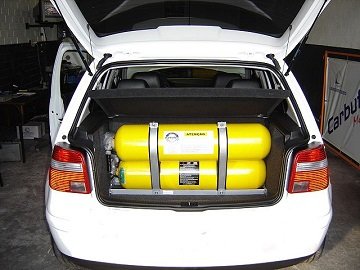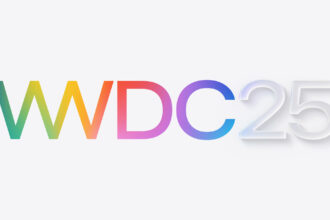In the aftermath of the rapid and constant increase in fuel prices in Nigeria, drivers in major cities like Abuja, Lagos, Benin, and Ibadan are becoming early adopters of CNG (compressed natural gas)-powered vehicles.
Although switching from petroleum to CNG benefits the environment, these drivers see it as a Godsent solution to the fuel crisis. Instead of purchasing petroleum between ₦870 to ₦1,250 per litre, they prefer paying ₦235 for a cubic meter of gas.
However, the downside is that the gas tank would consume the much-needed space in the car’s boot. Although most drivers see the tank placement as a potential safety risk, price comparisons are adequately silencing those concerns.
With ₦5,000 worth of gas, it can take a round trip from Lagos to Ibadan. At the current fuel price, the same journey would cost at least ₦30,000.
Olasukanmi, a newly converted CNG driver.
You can repurpose a vehicle with the CNG Kit at the Nigerian Independent Petroleum Company (NIPCO). This oil and gas company has been offering CNG conversion services for over five years.
However, the service is expensive, ranging from ₦750,000 to ₦2.5 million depending on the car and engine. This is because the accessories are expensive to import.
According to a 2019 report by the Nigerian Independent Petroleum Company (NIPCO), stakeholders in the oil and gas sector requested that the government make the kits duty-free. The government ignored the request, and as a result of the devaluation of the Naira; the kits are now more expensive.
In comparison, five years ago, the CNG kits cost between ₦200,000 to ₦300,000. Today, the price has more than tripled.
To help combat this issue, the federal government is funding conversions for public transport drivers in Abuja, Lagos, Benin, and Ibadan. Also, ride-hailing drivers will receive a 50% discount on the conversion kit and installment payment plans.
Bolt, a ride-hailing company, acknowledged that the government is offering 100 vehicle slots to interested drivers.
9 vehicles have been successfully converted, and 17 vehicles have been scheduled for conversion.
Bolt spokesperson.
The company is encouraging drivers to convert their cars to CNG for better cost efficiency, promising a turnaround in the recent dissatisfaction with the business model.
Switching to CNG is healthier for car engines as it produces lower hydrocarbon levels than petrol. There may not be a need to service the car engine in three months.
The CNG conversion trend among Nigerian commercial drivers, fueled by rising fuel costs, remains uncertain. While the cost benefits of CNG are undeniable, the high upfront installation cost continues to be a significant barrier to widespread adoption.
Government financing could potentially make CNG mainstream, but the long-term sustainability of this trend depends on factors such as the economic situation and the ability of drivers to absorb the conversion costs through fare adjustments.














